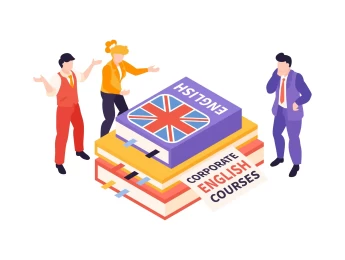Computer vision is one of the most impactful fields in artificial intelligence, enabling machines to interpret and understand visual data just like humans. From facial recognition and object tracking to autonomous vehicles and smart surveillance, computer vision is driving innovation across industries.
This hands-on course provides participants with a deep understanding of core computer vision algorithms and their real-time applications. You will learn how to process, analyze, and interpret image and video data using techniques such as image filtering, feature extraction, object detection, and motion tracking. The course also focuses on implementing these techniques in real-time systems using OpenCV and deep learning frameworks. By the end of the program, participants will be equipped with both the theoretical knowledge and the practical skills to deploy real-time computer vision applications.
By the end of this course, participants will be able to:
- Understand the principles of image processing and computer vision.
- Implement key computer vision algorithms for detection, recognition, and tracking.
- Apply OpenCV and Python for real-time video processing.
- Integrate deep learning models (CNNs) for advanced visual tasks.
- Optimize vision systems for performance and responsiveness.
- Design and deploy real-time computer vision pipelines for practical use cases.
This course is ideal for:
- AI and machine learning engineers.
- Computer vision and robotics developers.
- Software engineers working with real-time systems.
- R&D professionals in automotive, healthcare, and manufacturing.
- Academic researchers and students in computer vision and AI.
- Anyone interested in building real-time intelligent visual systems.
The course combines theoretical lectures, coding labs, real-time system demos, and project-based exercises. Participants will implement algorithms from scratch and apply them to real-world scenarios using OpenCV, Python, and TensorFlow/PyTorch. Learning will be hands-on and application-focused.
Day 5 of each course is reserved for a Q&A session, which may occur off-site. For 10-day courses, this also applies to day 10
Section 1: Introduction to Computer Vision and Image Processing
- What is computer vision? Applications and evolution.
- Basics of digital images: pixels, color spaces, histograms.
- Image filtering: smoothing, edge detection, thresholding.
- Introduction to OpenCV and image processing libraries.
- Lab: Apply filters and transformations to image datasets.
Section 2: Feature Extraction and Object Recognition
- Detecting edges, corners, and blobs using classical techniques (e.g., Canny, Harris, SIFT, ORB).
- Image descriptors and feature matching.
- Object recognition using template matching and keypoints.
- Use cases: industrial inspection, face detection, license plate recognition.
- Workshop: Build a feature-based object detection app.
Section 3: Real-Time Video Processing and Motion Analysis
- Capturing and processing live video streams.
- Frame-by-frame analysis and frame differencing.
- Background subtraction and motion detection algorithms.
- Real-time object tracking using Kalman Filters and MeanShift.
- Lab: Implement a motion tracking system with a live webcam.
Section 4: Deep Learning for Visual Recognition
- Introduction to convolutional neural networks (CNNs).
- Training and deploying deep learning models for classification and detection.
- Real-time inference using pretrained models (YOLO, MobileNet, SSD).
- Integrating TensorFlow or PyTorch with OpenCV for video processing.
- Demo: Real-time face mask detection or traffic sign recognition.
Section 5: System Optimisation and Deployment
- Reducing latency and improving frame rate in real-time systems.
- Hardware acceleration with GPUs and edge devices (e.g., Jetson Nano, Raspberry Pi).
- Managing memory and computation in video pipelines.
- Exporting and deploying models in production environments.
- Final project: Design and present a real-time vision system tailored to an industry application.
Upon successful completion of this training course, delegates will be awarded a Holistique Training Certificate of Completion. For those who attend and complete the online training course, a Holistique Training e-Certificate will be provided.
Holistique Training Certificates are accredited by the British Accreditation Council (BAC) and The CPD Certification Service (CPD), and are certified under ISO 9001, ISO 21001, and ISO 29993 standards.
CPD credits for this course are granted by our Certificates and will be reflected on the Holistique Training Certificate of Completion. In accordance with the standards of The CPD Certification Service, one CPD credit is awarded per hour of course attendance. A maximum of 50 CPD credits can be claimed for any single course we currently offer.
- Course Code PI2 - 128
- Course Format Classroom, Online,
- Duration 5 days








